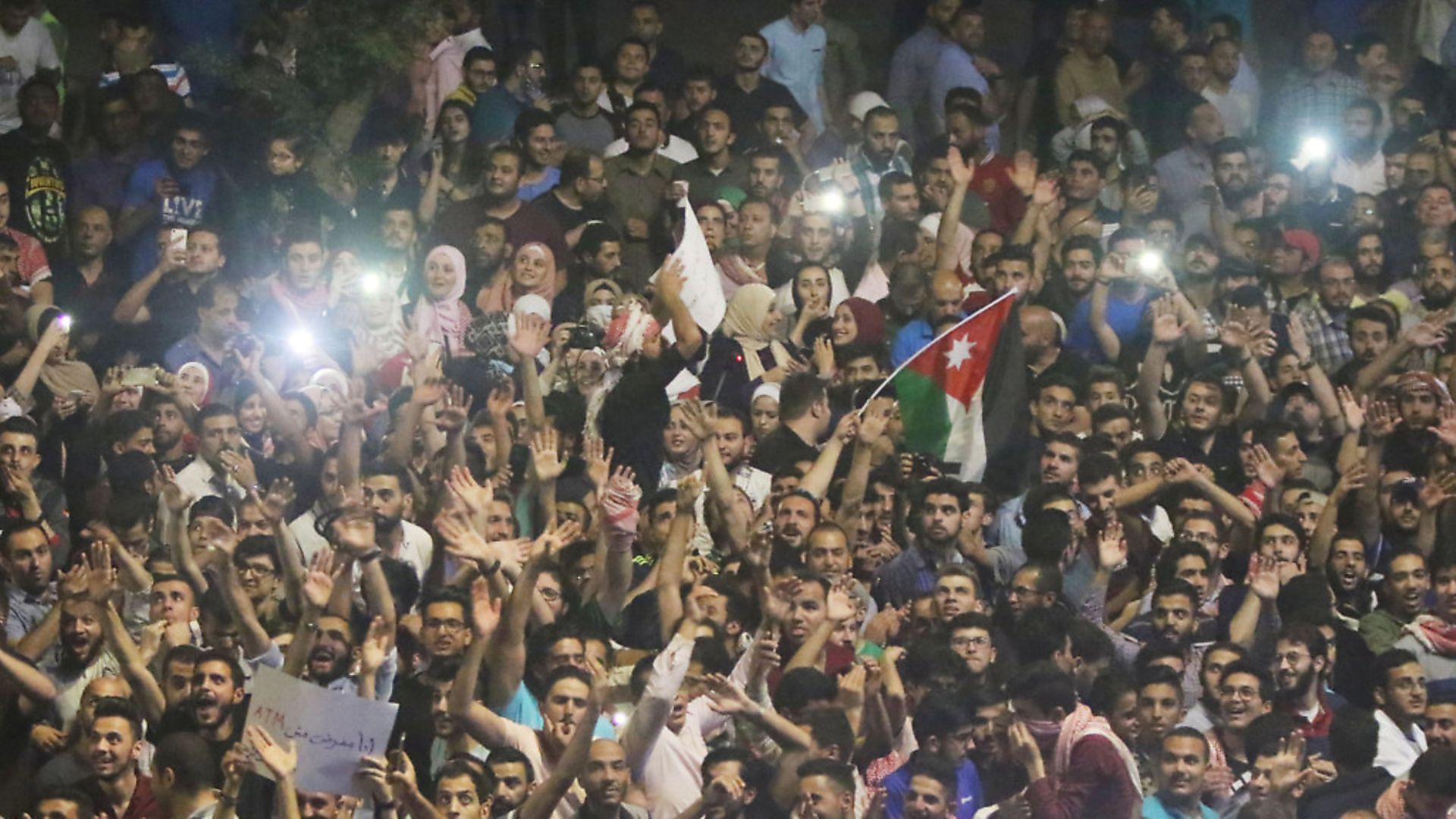
Are protests in Jordan the precursor to more Arab Spring turmoil or an encouraging sign that the region might finally be moving in the right direction, asks PAUL KNOTT.
The Middle Eastern Kingdom of Jordan has long been a beacon of stability and reasonableness in a region short on such attributes. But massive demonstrations have rocked the strategically important nation over recent weeks.
While the country has avoided the worst turmoil of the Arab Spring, its people share many of the same political and economic grievances that sparked those tumultuous events. The difference is that Jordan’s activists – and perhaps even the government – appear to have learned from their neighbours’ earlier uprisings. This could enable the concerns of the Jordanian people to be expressed and addressed without sparking a descent into chaos.
Jordan is a mostly benign autocracy, although its security services can be ruthless. King Abdullah is the ultimate authority and appoints the government. But the administration is accountable to parliament, which is elected by a restricted democratic process. This limited element of democracy does at least provide some degree of accountability and sensitivity to the public mood.
Jordan’s challenges are long-standing and numerous. It sits in a tough neighbourhood, with an unfriendly Israel to its west and unstable Syria and Iraq on its northern borders.
Jordan hosts one million refugees from the war in Syria, amid a local population of less than ten million. The scale of its refugee crisis dwarfs the influx that has vexed Europe. The Syrians add a further dimension to a society already prone to divisions between people of ‘East Bank’ Jordanian origin, who largely control the levers of power, and the larger percentage with Palestinian roots.
Economically, Jordan has few natural resources and only a modest economic base from which to provide opportunities for its young and growing population. The difficult geopolitical environment makes further development an uphill struggle. As a result, Jordan has, over the years, become heavily indebted to the international community due to the loans it has repeatedly sought to stay afloat.
International Monetary Fund (IMF) pressure on the country to reduce its debts is at the root of the recent mass protests. This year’s government budget imposed sales taxes on 165 items, significantly increasing prices for many basics such as fuel, electricity and water.
As if that was not enough, a new income tax bill proposes rate increases on businesses, notably food producers. A drastic lowering of the tax threshold will force low-paid citizens to pay much more. Failure to pay will now attract draconian criminal punishments.
The uproar these measures have caused has been compounded by the widespread view that the bureaucracy is corrupt and the elite close to the Royal Court is unjustly wealthy.
The protests are, though, more sophisticated than those that took place during the Arab Spring. The Hirak Shababi youth movement is at the forefront. Organisationally, it has joined forces with bodies such as the trade unions but stayed clear of the more divisive political parties and Islamists. Inclusivity is a key feature, with no distinctions being made between participants of East Bank Jordanian or Palestinian roots. Women are prominent in the marches. The campaigners are tactically astute too. They make a point of not confronting the security forces, whom one spokesman points out ‘are Jordanians like us – they don’t want their taxes to rise or standard of living to go down either’. The protestors discipline extends to cleaning up the streets after their marches, to avoid alienating those in society who fear upheaval and are unsure whether to support them.
Unlike in Egypt and Syria, the protestors are targeting their ire on specific government measures and instances of corruption, rather than making blanket demands for the fall of the regime. This gives the authorities room to respond constructively, rather than see the protests as a direct challenge to their existence.
The protestors have already had some successes. King Abdullah has fired Prime Minister Hani al-Mulki and decreed a freeze to the fuel price hike.
He is also expected to instruct the government to change some elements of the new tax bill.
These steps, though, are largely in keeping with the time-honoured measures used by Jordanian kings to deflect pressures from becoming focused on their rule. As always, Abdullah is likely to be supported financially by the wealthier nations of the region, if not Jordan’s long-standing but now unreliable US ally, under the feckless Donald Trump.
The Jordanian monarchy’s traditional self-preservation tactics may not be enough this time. The nous and determination of the protestors – and, to be fair, the willingness of the king to recognise their concerns – may eventually lead to more substantial changes in the way Jordan is governed.
By learning from the Arab Spring’s failures, the Jordanian people and their rulers could move their country in a more democratic direction, with the Royal Court taking a less hands-on role. This would show their Arab and North African neighbours that peaceful change is possible in their complex and troubled region.
Whilst it may seem optimistic in the present circumstances, it is possible to envisage the 2011 Arab Spring one day being looked back upon as the first step towards improving the lot of the Arab world. And the current protests in Jordan could be the cresting of a second wave of smarter, more successful popular revolts.
Paul Knott is a writer on international politics. He spent 20 years as a British diplomat, with postings to Romania, Dubai, Uzbekistan, Ukraine, Russia and the European Union in Brussels.









